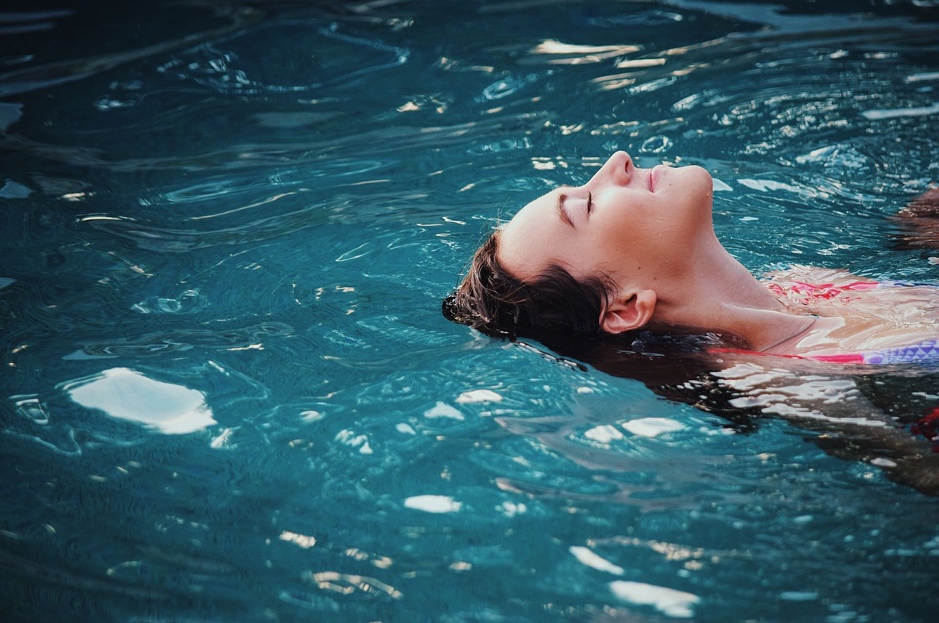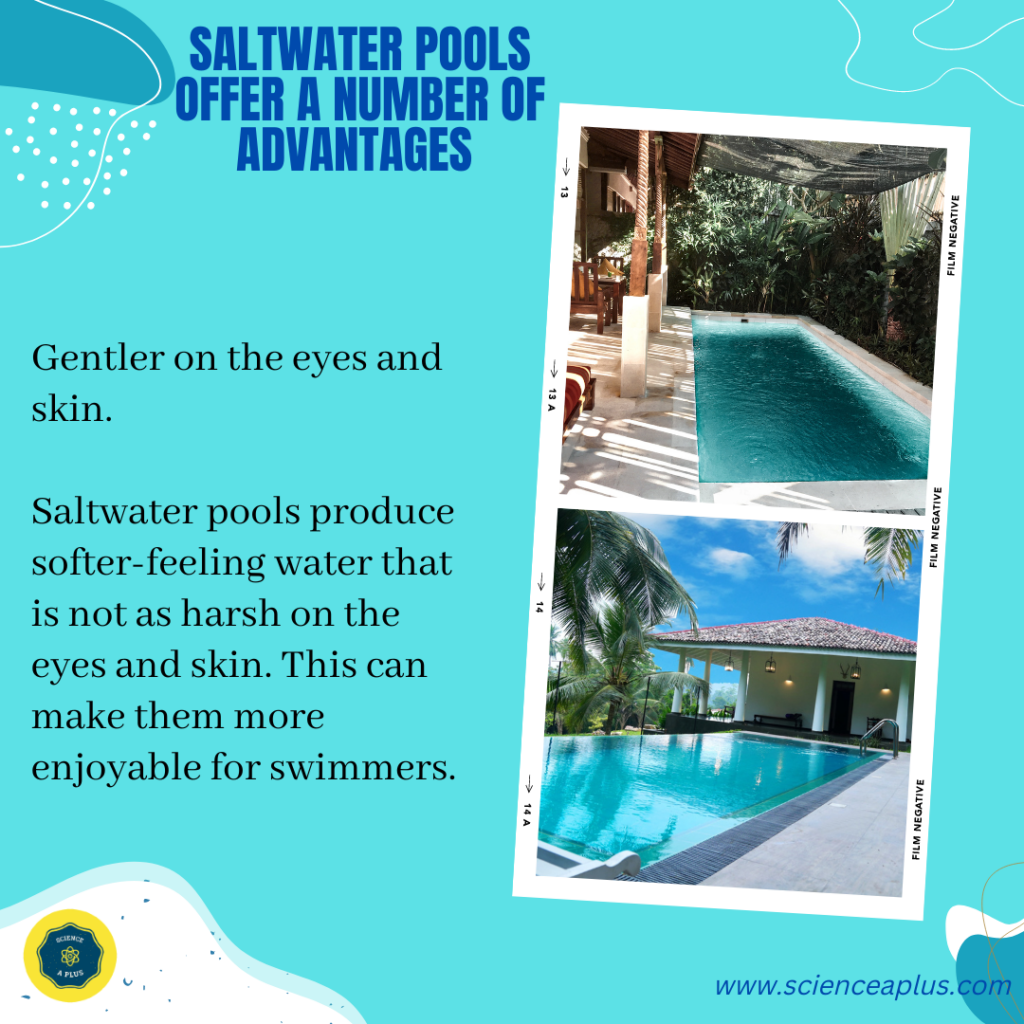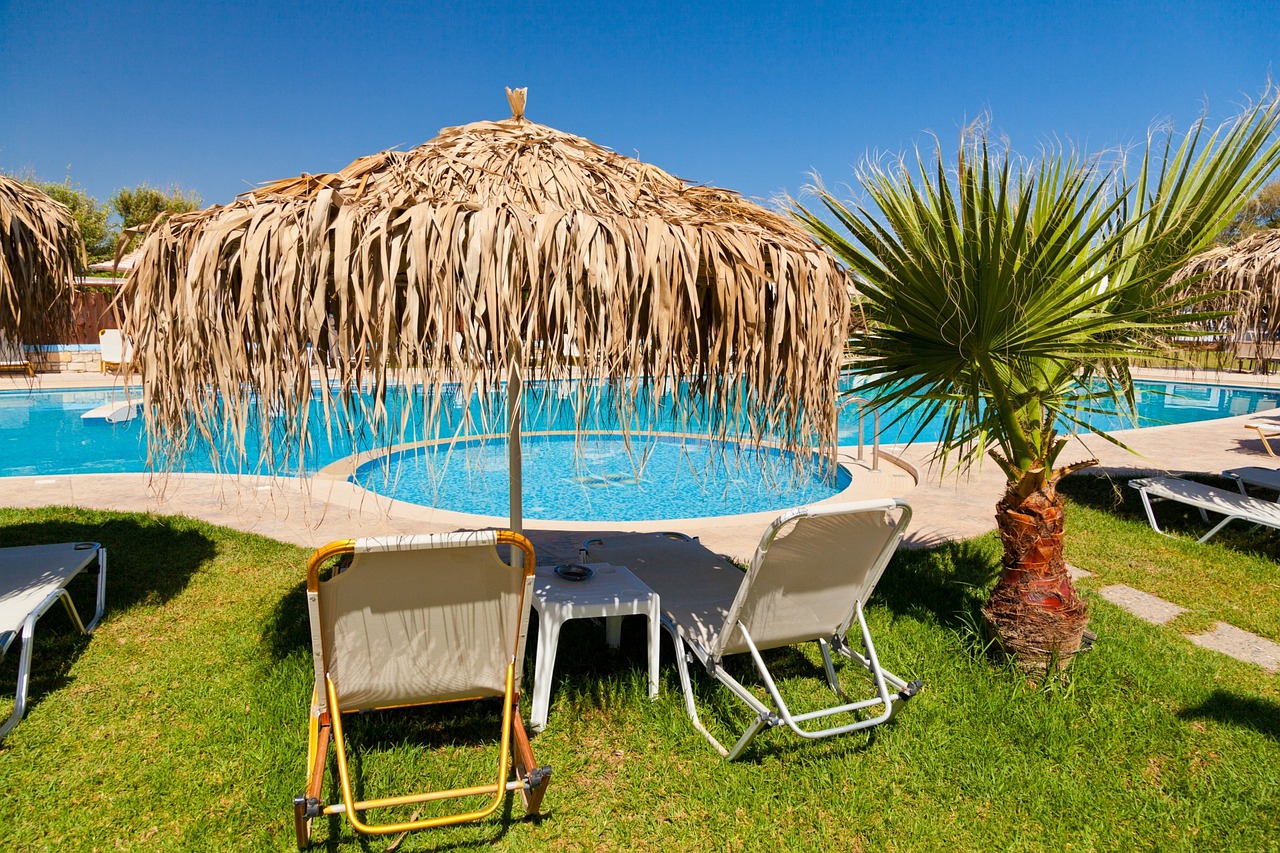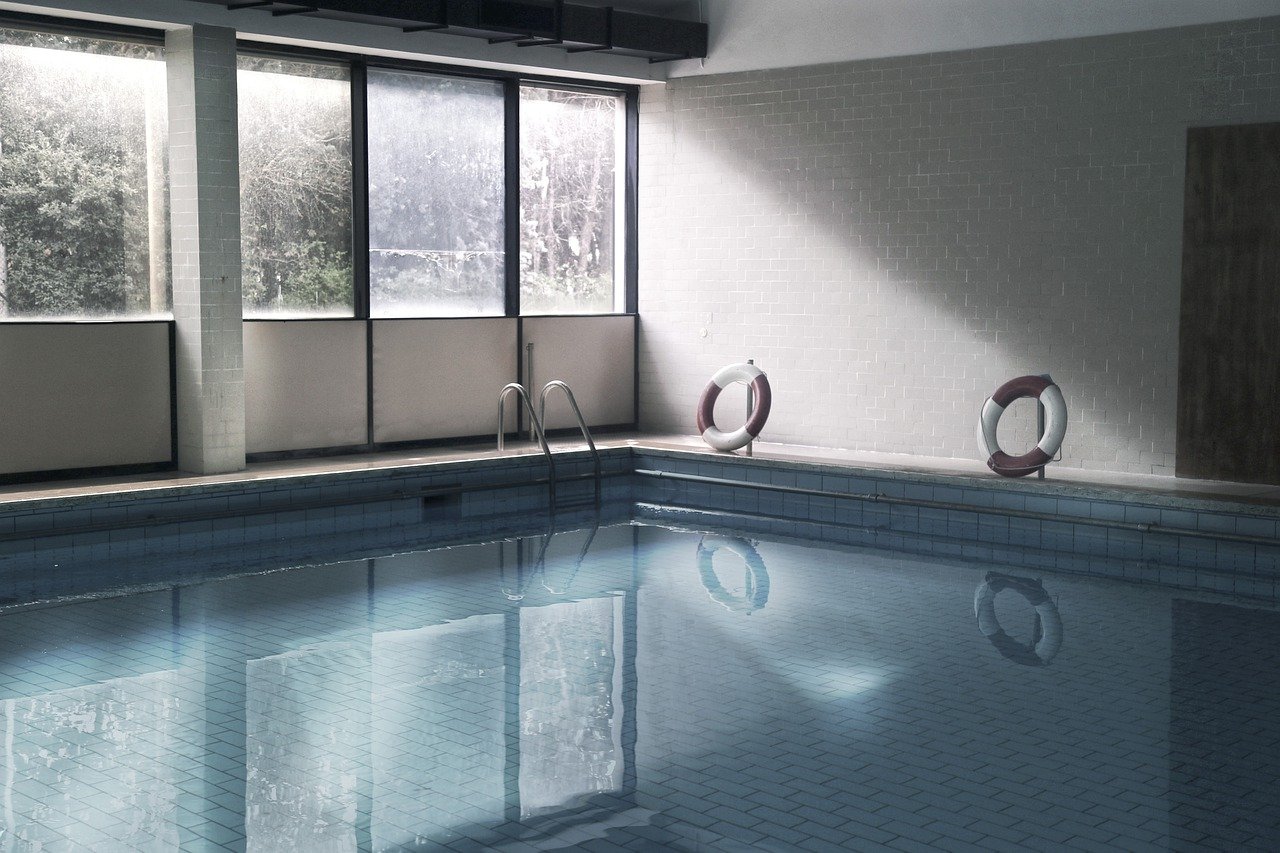Why saltwater pools are famous?
Saltwater pools are an attractive option for those who want a swimming pool but do not want to deal with the maintenance issues of high levels of chlorine. Saltwater pools come in a variety of designs and sizes, but they all share one thing in common — they’re easier on the eyes and skin.

Saltwater pools produce softer-feeling water as opposed to chlorinated water. The salt content of the water naturally softens the water, which can help soothe irritated eyes and skin. This is especially true for individuals with sensitive skin or allergies.
Saltwater pools offer a number of advantages over chlorine-based pools, including:

Gentler on the eyes and skin. Saltwater pools produce softer-feeling water that is not as harsh on the eyes and skin. This can make them more enjoyable for swimmers.

Safer than chlorine pools. Chlorine is a powerful irritant, which can lead to bacterial infections in sensitive areas like your eyes, nose, and mouth. Saltwater pool filters do not use a lot of chlorine and do not produce many harmful fumes or odors when they are operating properly.
Pools require less maintenance. The saltwater system requires less frequent replenishment of salt than does a chlorine system because it does not require an ongoing source of chlorine.
Pool owners should note that there are some disadvantages associated with saltwater systems as well:
Saltwater systems tend to be more expensive than traditional chlorine systems because they require extra plumbing work and equipment such as salt-chlorine generators. The initial setup of a saltwater system can be more time-consuming than that of a chlorine system.
The programming of such a system is more complicated than that of a chlorine system, so it may require professional installation and maintenance. Saltwater systems require that the pool owner test and adjust the water chemistry on a regular basis.
Saltwater pools require more energy consumption than chlorine-based pools, making them much more expensive on electricity cost. This is because salt-water pools require salt-chlorine generators to function and they need electricity. Consider choosing renewable energy like solar energy to reduce electricity costs.
Because of the salinity special equipment, fixtures and lighting gadgets need to be used. There is significantly different masonry/plumbing work when constructing a saltwater pool.
Can swimming in saltwater pools burn more calories?
Swimming is a great option to burn calories. The calories burned while swimming is different from the calories burned from other forms of exercise. The amount of calories you burn while swimming depends on the intensity level and duration of your swim. Swimming is a great exercise that is easy on your joints, especially if you swim at a slow speed. It can also help strengthen your muscles and improve flexibility.
Swimming in saltwater is not found to be more effective than swimming in chlorinated pools.

Why do salt-water pools become cloudy?
This can happen in any kind of pool when maintenance is not done regularly. When water is chemically imbalanced the cloudiness appears. Then the pool needs to be maintained by a professional and swimming should not be done in a cloudy saltwater pool.


